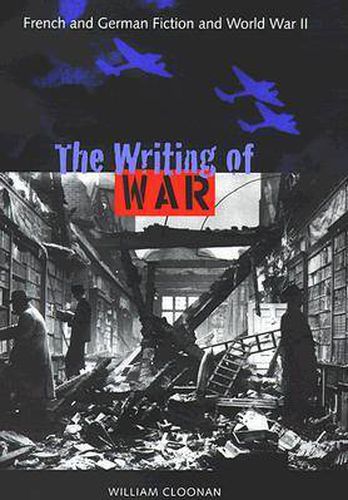Readings Newsletter
Become a Readings Member to make your shopping experience even easier.
Sign in or sign up for free!
You’re not far away from qualifying for FREE standard shipping within Australia
You’ve qualified for FREE standard shipping within Australia
The cart is loading…






In revaluating how World War II affected the writing of literature in France and Germany, the author argues that many established writers (Thomas Mann, Ernst Junger, Albert Camus, Jean-Paul Sartre) were unsuccessful in their attempts to write about the war precisely because they refused to confront the ways in which the conflict was so radically different from previous wars. In particular, atrocities such as the Nazi’s Final Solution, the atomic devastation of Japan, and the bombings of civilian populations called into question the moral and intellectual framework that had shaped Western thinking. Combining a literary history and textual analyses, Cloonan turns to efforts in France and Germany by younger artists to rethink the approach to literature in a postwar context, devoting attention to Group 47 (Germany) and the New Novelists (France). At the centre of his study are detailed analyses of novels by Celine, Gunter Grass, Siegfried Lenz, Claude Simon and Christa Wolf. Cloonan explains how each writer opened new perspectives on World War II and in so doing contributed to the establishment of a postwar literary consciousness. Cloonan argues, in conclusion, that the novel remains a valuable tool for exploring social reality precisely because it remains capable of addressing an audience that extends beyond the academic community.
$9.00 standard shipping within Australia
FREE standard shipping within Australia for orders over $100.00
Express & International shipping calculated at checkout
In revaluating how World War II affected the writing of literature in France and Germany, the author argues that many established writers (Thomas Mann, Ernst Junger, Albert Camus, Jean-Paul Sartre) were unsuccessful in their attempts to write about the war precisely because they refused to confront the ways in which the conflict was so radically different from previous wars. In particular, atrocities such as the Nazi’s Final Solution, the atomic devastation of Japan, and the bombings of civilian populations called into question the moral and intellectual framework that had shaped Western thinking. Combining a literary history and textual analyses, Cloonan turns to efforts in France and Germany by younger artists to rethink the approach to literature in a postwar context, devoting attention to Group 47 (Germany) and the New Novelists (France). At the centre of his study are detailed analyses of novels by Celine, Gunter Grass, Siegfried Lenz, Claude Simon and Christa Wolf. Cloonan explains how each writer opened new perspectives on World War II and in so doing contributed to the establishment of a postwar literary consciousness. Cloonan argues, in conclusion, that the novel remains a valuable tool for exploring social reality precisely because it remains capable of addressing an audience that extends beyond the academic community.